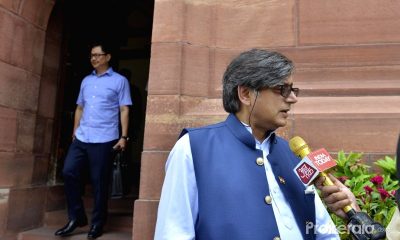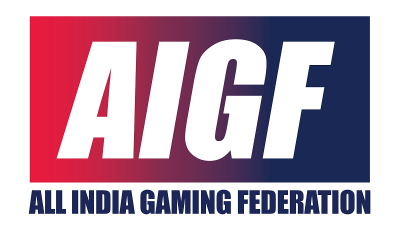Legal & Regulatory
Constitutional issues involved in the regulation of online gaming: Final word on framing online gaming policy rests with the Central government
Sikkim governments decision to issue online gaming licenses in 2008 created excitement and buzz among leading business houses and International gaming companies. Interested companies saw this as a great opportunity to tap the gaming industry believed to be worth billions of dollars.
However, almost four years after the governments decision to allow online gaming, no license-holder has started operations till date. While the legal difficulties faced by the licensees were addressed in an earlier post, another aspect that needs consideration is whether the online gaming regulation Act and other rules passed by the Sikkim government are outside their legislative competence and are thus unconstitutional.
Entry No. 34 of List II of the Seventh Schedule of the Constitution gives the respective state governments exclusive power to make laws relating to betting and gambling. Entry No. 62 further gives the state governments power to tax betting and gambling activities. It thus follows that state governments can easily chose to permit or ban gambling operations.
However one has to notice that this provision in the Constitution drafted over 60 years ago, was actually designed to authorise state governments to regulate brick and mortar casinos. The provision in no way allows state governments to grant online gaming licenses for companies to attract participants from other states.
The design of the Sikkim government has been to allow companies to base their technologies in Sikkim while allowing participants from other states to place wagers on such gaming websites. Such an action would fall outside the legislative competence of the state list.
Only the Indian Parliament and Central government has powers to make laws regulating Inter-state trade and commerce [See entry No. 42 of List I of Seventh Schedule].
Further under Entry No. 31 Parliament has exclusive powers to make laws on matters relating to technology and communication. This means that regulation of any information or content on the internet falls exclusively within the domain of the Central government.
It must also be noted that the Australian Parliament has passed the Interactive Gaming Act 2001; making it illegal for companies to offer online gaming services (though offline gambling is regulated by various state governments). This Act was passed by the Australian parliament under Section 51 (v) of the Australian Constitution which allows the parliament to pass any law relating to postal and telegraphic services etc. This clause is similar to Entry No. 31 of the Indian constitution mentioned above.
The US federal government had also passed the Unlawful Internet Gambling Enforcement Act 2006 (UIGEA) which prohibits financial institutions to allow payments for online gambling.This Act was also passed under the inter-state trade and commerce clause under Article 1, Section 8 of the US Constitution. Interestingly, regulation of brick and mortar casinos is again the prerogative of the various state governments.
Conclusion
The relevant provisions of the Indian constitution and laws made by USA and Australia make it abundantly clear that regulation of all kinds of inter-state gaming activities and all forms of internet gambling is the prerogative of the Central government and Union parliament.
In this day and age of globalisation and technological advancement where gaming websites operating from other countries need to be regulated, it is impossible to allow the state governments to regulate online gaming. [Matters concerning foreign trade and friendly relations are also within the domain of the Central government according to the Seventh Schedule].
It is thus appropriate that the regulation of online gaming is left in the hands of the Central government.
The current policy of the government is to prohibit all forms of online gambling in total. This is evident from Rule 3 (b) of the Information Technology (Due diligence observed by Intermediaries Guidelines) Rules, 2011 which prohibits publishing anything relating to or encouraging gambling.
Further the Ministerial Order on Blocking of Websites 2003 allows the Director of Computer Emergency Response Team (CERT) to block websites that promote gambling on receipt of complaint from specified government officials.
Since the current policy of the Central government is in favour of banning online gaming in toto, the licenses issued by the Sikkim government may be completely worthless. Additionally, the Sikkim Online Gaming (Regulation) Act 2008 and other rules framed by the Sikkim government might also be held unconstitutional and invalid; if the matter goes to the Supreme Court.






















Sunreet Sunny
February 5, 2012 at 12:35 pm
I consider ‘Economic Times’ as a reliable publication and it has already mentioned that ‘. Anybody with an active bank account in Sikkim can participate in online gaming in Sikkim’ :
http://articles.economictimes.indiatimes.com/2011-10-23/news/30310751_1_mandovi-river-casinos-teen-patti/2
Any bank located in Sikkim is allowed to create bank account only for those persons who can provide a proof of residence in Sikkim. Proof of address is a necessary requirement to create accounts in Indian banks. So only that much information automatically makes the most of the people of the rest of India ineligible to participate online gaming supposed to be offered in Sikkim in future.
bharat
February 23, 2012 at 12:51 pm
If a rummy site is run in such a way that the player wins points and later these points are used to buy products on the same site.
Then is it against the law?
Jay Sayta
February 23, 2012 at 2:34 pm
Since rummy is legal by virtue of the decision of the Supreme Court, it would be legal to start such a online rummy website.
Sachin
March 8, 2012 at 12:02 pm
Games like Dragon oth are also covered under your comment “The current policy of the government is to prohibit all forms of online gambling in total. This is evident from Rule 3 (b) of the Information Technology (Due diligence observed by Intermediaries Guidelines) Rules, 2011 which prohibits publishing anything relating to or encouraging gambling.”
Sheelang Shah
November 6, 2012 at 2:29 pm
Where can I find a copy of Sikkim On-line Gaming (Regulation) Rules, 2009 which were further called the Sikkim On-line Gaming (Regulation) Amendment Rules, 2011 after the notification on March 24, 2011 by the Government of Sikkim?
Jay Sayta
November 6, 2012 at 3:59 pm
they have not been made available in the public domain.
Md
October 29, 2013 at 2:13 pm
I am from maharashtra , then i can do gambling (online) in sikkim?